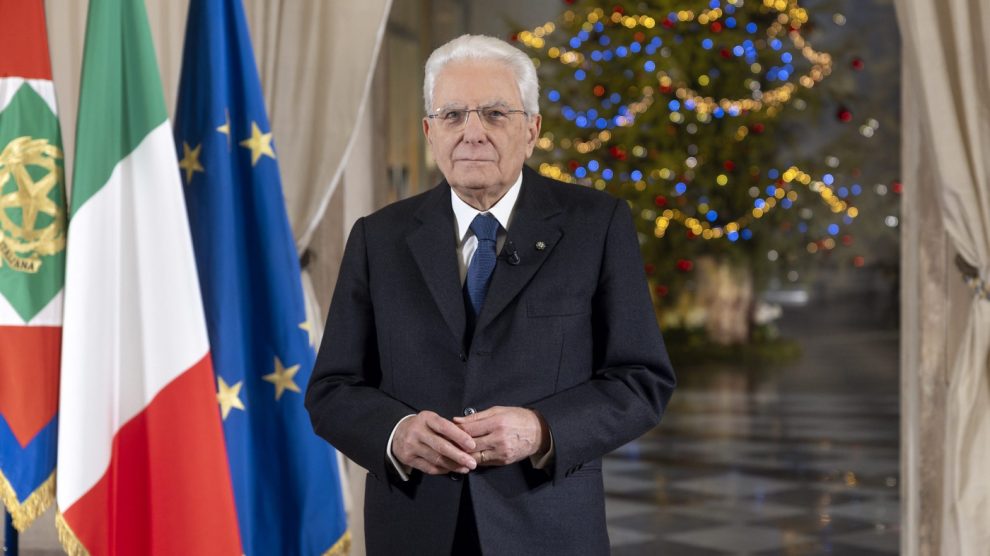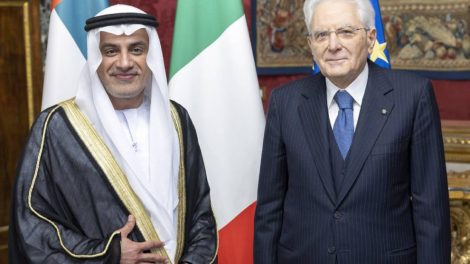Taking stock of 2023. On Sunday evening, as the year was drawing to a close, Italian President Sergio Mattarella took to the airwaves for the traditional end-of-year speech. Right at the start, after expressing his hope for “positive and reassuring days ahead,” he turned his attention to the “violence of wars,” both those in progress and “those evoked and threatened”…
- …namely “the devastation we see in Ukraine, invaded by Russia, to subdue and annex it,” as well as the “horrible terrorist ferocity” displayed by Hamas on October 7 against defenceless Israeli civilians – “unspeakable beyond words, in its inhumanity.”
- He also lamented the civilian casualties and destruction in Gaza as a consequence of the military response, echoing the Western calls to minimise the loss of life that accompany their support to Israel.
At the root of the issue. “War – every war – generates hatred. And hatred will last, multiplied, long after the conflicts are over,” remarked President Mattarella, stressing that the conflicts are “the result of the refusal to recognise […] peoples as equals, endowed with equal dignity,” and calling out those who assert “a principle of inequality under the pretext of national interest.”
- Attempting to justify unilateral aggressions “because they have always occurred throughout history” is tantamount to “rejecting the progress of human civilisation,” he argued, highlighting the broken lives, destroyed families, and lost generations this mindset ultimately produces.
- “And all this is happening close to us. In the heart of Europe. On the shores of the Mediterranean. Rubble, not only physical. Which weighs on our present. And will weigh on the future of the new generations.”
Turning away from violence… War, argued the Italian Head of State, ultimately arises from cultivated mentality – “the attitudes of violence, of oppression, that manifest themselves.” Thus, it’s “essential to make room for the culture of peace” – which is not about “abstract bleeding heart [speech],” but rather “the most urgent and concrete exercise of realism [to] seek a way out of a crisis that can be devastating for the future of humanity.”
- “We know that, to put an end to the current wars, it is not enough to invoke peace. It must be pursued by the will of governments. First and foremost, of those that have triggered the conflicts,” he stressed.
- He also warned that wanting peace does not equate to “neutrality, or worse, indifference, to what is happening: that would be unjust, and also quite despicable.”
… and following the path to peace. Pursuing it, continued President Mattarella, entails “rejecting the logic of a permanent competition between States [that] jeopardises the fate of the respective peoples [and] undermines at its foundations a society based on respect for people.” Thus, he argued, silencing arms is “not enough” to achieve peace, as building it requires a society-wide exercise of education.
- Achieving peace means “cultivating its culture in the feelings of the new generations. In the gestures of everyday life. In the language used,” he said, calling to “respecting each other, recognising each other’s reasons” while being “aware that the freedom of others complements our own freedom.”





